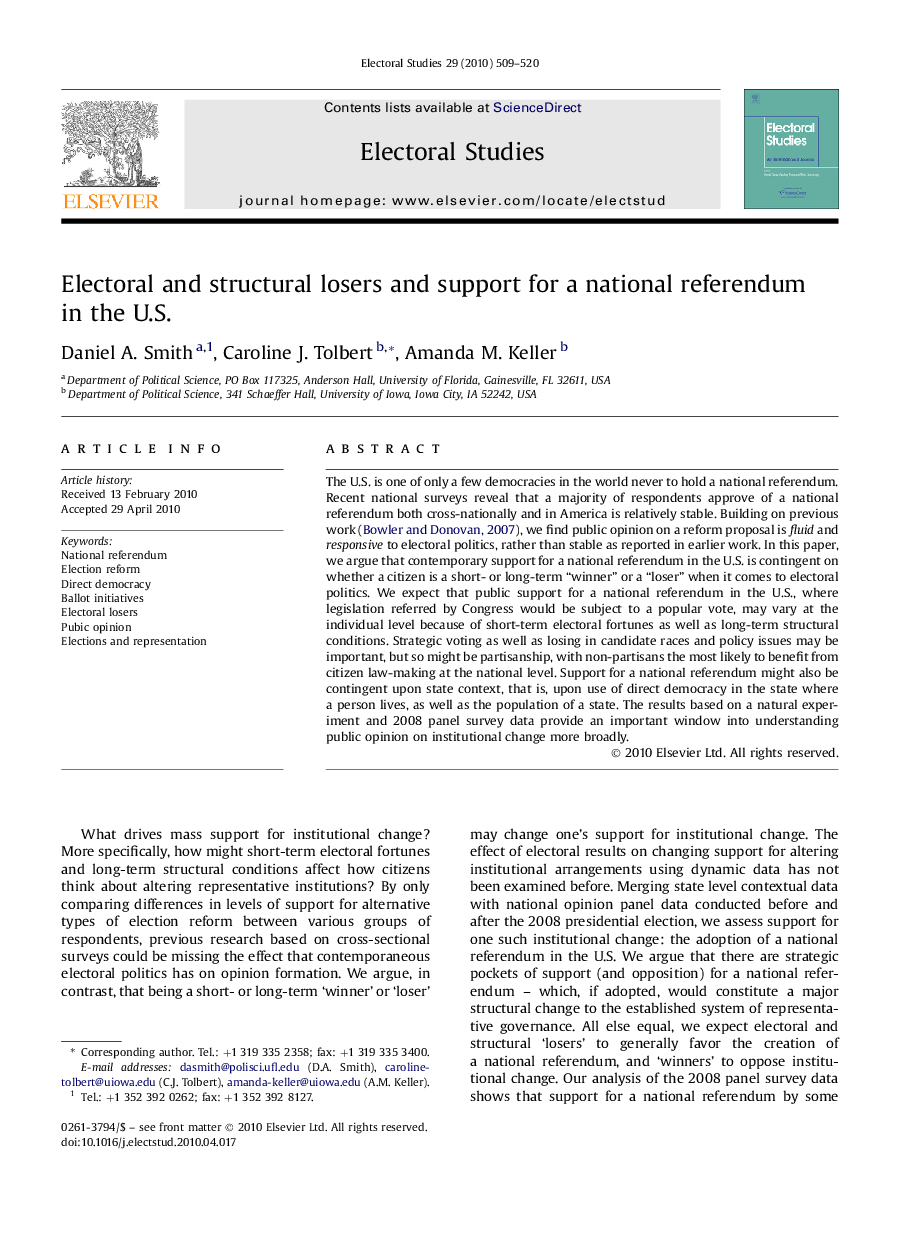| Article ID | Journal | Published Year | Pages | File Type |
|---|---|---|---|---|
| 1051968 | Electoral Studies | 2010 | 12 Pages |
The U.S. is one of only a few democracies in the world never to hold a national referendum. Recent national surveys reveal that a majority of respondents approve of a national referendum both cross-nationally and in America is relatively stable. Building on previous work (Bowler and Donovan, 2007), we find public opinion on a reform proposal is fluid and responsive to electoral politics, rather than stable as reported in earlier work. In this paper, we argue that contemporary support for a national referendum in the U.S. is contingent on whether a citizen is a short- or long-term “winner” or a “loser” when it comes to electoral politics. We expect that public support for a national referendum in the U.S., where legislation referred by Congress would be subject to a popular vote, may vary at the individual level because of short-term electoral fortunes as well as long-term structural conditions. Strategic voting as well as losing in candidate races and policy issues may be important, but so might be partisanship, with non-partisans the most likely to benefit from citizen law-making at the national level. Support for a national referendum might also be contingent upon state context, that is, upon use of direct democracy in the state where a person lives, as well as the population of a state. The results based on a natural experiment and 2008 panel survey data provide an important window into understanding public opinion on institutional change more broadly.
